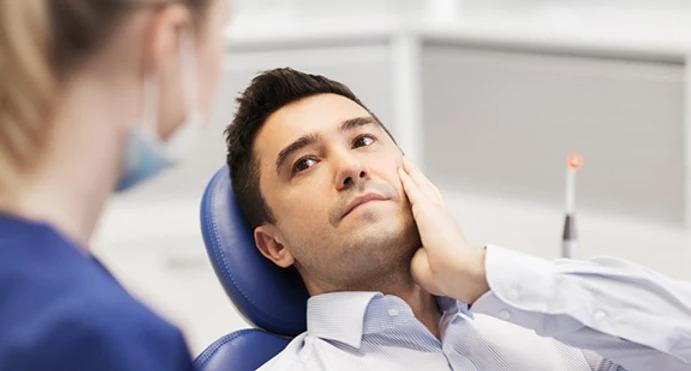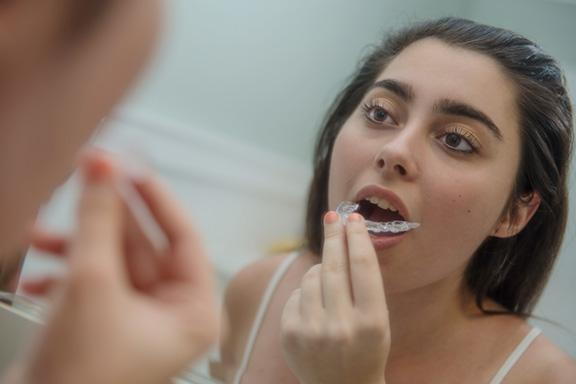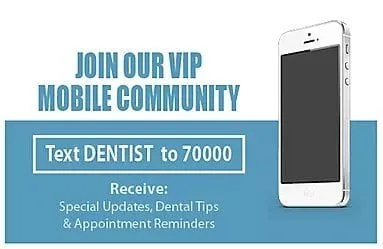
Teeth grinding, or bruxism, as it’s referred to by dental professionals, is a condition that occurs as a result of clenching, gnashing or grinding your teeth. This condition can happen during waking hours or when you sleep. Sleep bruxism is usually a secondary condition that occurs as a result of another sleep disorder, such as sleep apnea or snoring. While mild bruxism may not need correction, more severe forms of the disorder result in other medical issues such as headaches, jaw and neck pain, and damaged teeth.
Signs And Symptoms Of Bruxism
People who suffer from sleep bruxism may not even know they are doing damage to their teeth, so it is important to recognize signs and symptoms as they become evident and to speak to dental professionals who will assist in treating this potentially harmful condition. Some of the symptoms that patients experience include:
Teeth grinding or clenching; in some cases loud enough to wake yourself or your partner
Fractured, chipped, or significantly flattened teeth
Weaknesses in areas of the mouth that did not exist before
Worn tooth enamel, and painful sensitivity in exposed areas
Tight and tired jaw muscles, and discrepancies in the structure and alignment of the bite
Neck, face, and jaw soreness
Ear pain that resembles an earache
Headaches and excess tension in the neck and jaw area
Damage to the inside of the cheeks, possible damage to tongue tissue
Disruption in sleep patterns
If you have been experiencing any dental health issues for a prolonged period, your state of health may be more precarious than you think. It is best to schedule a visit to your dental professionals to diagnose and treat any issues that arise.
Teeth Grinding: Why Does It Develop?
Our natural state of waking and sleeping does not include clenched teeth and jaws. Medical professionals are unsure as to why bruxism develops, although some theories include emotional distress, anger, frustration, and even periods of deep concentration when grinding could be a coping strategy. Sleep bruxism usually arises as a result of abnormal patterns of arousal during sleep. There are specific risk factors evident in patients that seem consistent with the development of bruxism.
Risk factors include:
Excessive or prolonged periods of stress. Extreme stress, anger, and frustration have clenching effects on all of the body’s systems, and the neck and jaw area are not immune to the effects of these harmful emotions.
Age is also a factor. Bruxism is quite common in young children, and most people who have had it as children tend to grow out of it in adulthood.
Family History. Studies show that bruxism is quite common in family members. Further genetic testing is being conducted to see if people have genetic predispositions to bruxism.
Medications And Other Substances. Some patients taking psychiatric medications have reported bruxism as a side effect of taking certain drugs. Smoking and using tobacco, drinking caffeinated beverages, consuming alcohol and using other recreational drugs may also contribute to the development of the condition.
Links Between Bruxism And Other Disorders. Bruxism develops as a secondary side effect of diseases such as Parkinson’s disease, dementia, reflux issues, epilepsy, ADHD, and sleep disorders.

Do I Need To Treat Bruxism As A Serious Condition?
Any condition, if left untreated, has the potential to wreak havoc on your health. Bruxism can cause damage to the jaw, teeth, and soft tissues of the mouth. Besides, muscle tension in the neck and jaw area can cause neck, shoulder, and head pain as well. If these conditions persist, it is essential that treatment is implemented to ease discomfort and minimize any damage that may have occurred.
What To Expect At Your Dental Evaluation
If you suspect that you are grinding your teeth, you will need to make an appointment with your dental professionals to be appropriately evaluated and diagnosed. Your dentist will ask you questions about medical history and daily habits to determine an underlying cause for your condition. A thorough evaluation of the teeth, jaw, and neck will be conducted to check for existing damage, and a treatment plan will be developed to ensure that deterioration does not continue.

How Is Bruxism Treated?
If bruxism is causing damage to teeth, gums, and other areas of the head and neck, treatment is required. Splints and mouth guards can be worn to minimize damage to teeth, and if restoration of teeth is needed, dentists can fortify tooth surfaces to strengthen them.
If medically determined that the underlying cause of the condition is stress, anxiety, or anger, learning strategies to reduce or manage these emotions is helpful in reducing grinding symptoms. Biofeedback devices offer an accurate picture of actions being performed unconsciously, and corrective behavior is shown to reduce or eliminate signs of bruxism.
In some cases, your doctor and dentist may prescribe a muscle relaxant to relieve stress on the muscles in the neck and jaw, or anti-anxiety medication to treat the cause of grinding.
Talking to your dentist about your environment, your stressors, and your family history will allow them to create an accurate treatment plan that will address your unique condition and situation.
Proactive Care = Better Health
Assessing your health, determining your needs, and speaking to qualified professionals about your care is the best way to manage your health proactively. If you suspect that you are suffering from bruxism, talk to your dental care team to assess your condition and voice your concerns.
Dr. Krueger and his talented team of professionals are trained to assess your needs and work with you to develop high-quality care plans to improve your dental health and well being. Your mouth is the gateway to health, and keeping your teeth and gums in top condition will minimize the risk of developing other severe health conditions. Visit https://www.gordonekruegerdds.com today to set yourself on the path to health and vitality. A healthy smile is in your future!








